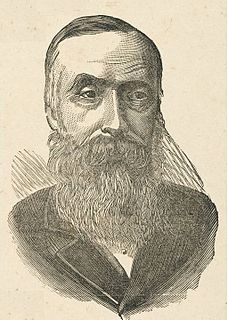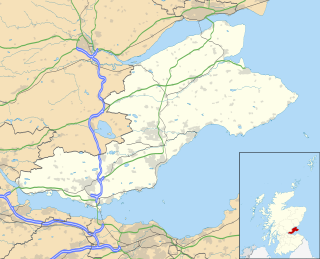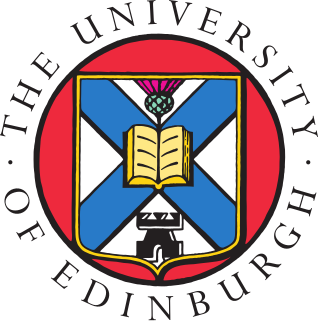
Sir Julius Vogel was the eighth Premier of New Zealand. His administration is best remembered for the issuing of bonds to fund railway construction and other public works. He was the first Jewish prime minister of New Zealand. Historian Warwick R. Armstrong assesses Vogel's strengths and weaknesses:
Vogel's politics were like his nature, imaginative – and occasionally brilliant – but reckless and speculative. He was an excellent policymaker but he needed a strong leader to restrain him....Yet Vogel had vision. He saw New Zealand as a potential 'Britain of the South Seas', strong both in agriculture and in industry, and inhabited by a large and flourishing population.
William Henry Cutten was a New Zealand politician from the Otago region.

William Walter Cargill was the founder of the Otago settlement in New Zealand, after serving as an officer in the British Army. He was a Member of Parliament and Otago's first Superintendent.

John Z. Robinson is a New Zealand painter, printmaker, and jeweller. He has lived in Dunedin, New Zealand since 1978.

John Andrew Millar was a New Zealand politician of the Liberal Party from Otago.

William Hutchison was a New Zealand politician and journalist. Hutchison and his son George were both Members of Parliament.

Thomas Dick was a 19th-century New Zealand politician. Originally a merchant, he worked in London and then represented his firm on Saint Helena for seven years. From there, he was sent to Dunedin as the company's representative; he emigrated with an extended family. He soon became involved in politics and was Superintendent of Otago Province from 1865 until 1867. Over a period of 24 years, he represented various Dunedin electorates in Parliament and was Colonial Secretary (1880–1884), Minister of Justice from 1881 to 1882, and Minister of Education from 1881 to 1884. A deeply religious man, he was involved in many church affairs. He was one of the founders of Hanover Street Baptist Church; the building is now classified as Category I by Heritage New Zealand.
Allan Holmes was an Australian-born New Zealand cricketer who played for Otago. He was a barrister at the Supreme Court.
Port Chalmers then Chalmers was a parliamentary electorate in the Otago Region of New Zealand, from 1866 to 1938. It was centred on the town of Port Chalmers, the main port of Dunedin and Otago.
Caversham was a parliamentary electorate in the city of Dunedin in the Otago region of New Zealand, from 1866 to 1908.
Taieri is a former parliamentary electorate in the Otago region of New Zealand, from 1866 to 1911.
Dunedin or the City of Dunedin or the Town of Dunedin was a parliamentary electorate in the city of Dunedin in Otago, New Zealand. It was one of the original electorates created in 1853 and existed, with two breaks, until 1905. It was the only New Zealand electorate that was created as a single-member, two-member and three member electorate.
William Baldwin, born John Baldwin was a 19th-century Member of Parliament in the Otago region of New Zealand.
James McIndoe was a 19th-century Member of Parliament from Dunedin, New Zealand.
James Gore was a 19th-century Member of Parliament from the Otago region of New Zealand, and Mayor of Dunedin.
Lewis Adolph Henry Hotop was a New Zealand pharmacist, politician and Arbor Day advocate. He served as mayor of Queenstown on three separate occasions.

Alfred Lee Smith was a Yorkshire-born businessman from Dunedin, New Zealand. He was a member of the member of the New Zealand Legislative Council for one term from 1898 to 1905.

Joseph Braithwaite was a New Zealand bookseller and politician. He was mayor of Dunedin from 1905 to 1906.
Henry Clapcott was a New Zealand businessman and politician.
The 1878 Roslyn by-election was a by-election for the electorate of Roslyn on 29 July 1878 in Dunedin during the 6th New Zealand Parliament.












